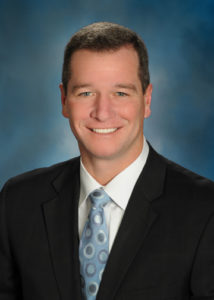SPRINGFIELD, Ill. – Police and prosecutors will be able to charge child sexual predators at any time under legislation passed by state Rep. John D’Amico, D-Chicago, closing a loophole that allowed disgraced former U.S. House Speaker Dennis Hastert to avoid prosecution for sex crimes he committed decades ago.
“Offenders of crimes as heinous as those that former Speaker Hastert committed should not be able to get off due to a technicality in the law,” D’Amico said. “We need to hold the perpetrators of these horrible acts accountable to the fullest extent of the law.”
D’Amico voted to pass Senate Bill 189, which removes the statute of limitations on various sex crimes against children including sexual assault, aggravated criminal sexual assault and predatory criminal sexual assault. The measure would allow law enforcement to bring charges at any time when survivors come forward or evidence is discovered.
D’Amico’s efforts are necessary as survivors of rape and sexual abuse are often reluctant or unable to report the crime. According to the U.S. Department of Justice, nine out of 10 child sexual abuse victims are abused by someone close to them, and may be hesitant to report them. Disclosure of sexual abuse is often delayed; children often avoid telling because they are either afraid of a negative reaction from their parents or of being harmed by the abuser. This causes them to often delay disclosure until adulthood.
Hastert pled guilty to illegal bank withdrawals and lying to federal law enforcement agents in 2016. The illegal withdrawals were made to an individual as hush money payments to keep past sexual misconduct from going public, but Hastert could not be charged for the sex crimes themselves because the statute of limitations had expired.
“The trauma caused by crimes like these will last a lifetime; victims deserve to see the perpetrators brought to justice,” D’Amico said. “I urge the governor to sign this bill and eliminate this unjust loophole.”
The measure received bipartisan support in the House and Senate, and now awaits the governor’s signature before becoming law.
